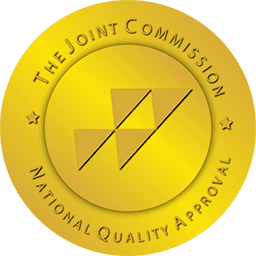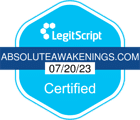Recognizing the importance of seeking help for alcohol and drug dependency is a pivotal step in the journey towards recovery. Local rehab facilities offer a beacon of hope for individuals and families affected by addiction. These centers provide essential services in a convenient, accessible setting, ensuring that support is within reach for those in need. Proximity is crucial for many seeking treatment, as it allows for easier transition into the program and ongoing support from loved ones. Moreover, local rehabilitation centers can offer a sense of community, which is often integral to the healing process.
Local treatment options cater to a diverse range of needs, offering various programs including detoxification services, individual and group therapy, and aftercare planning. Tailored approaches ensure that each person’s unique situation is addressed, fostering a more effective path to sobriety. Choosing a nearby alcohol and drug treatment center also allows for continuity of care, which is essential for long-term success in recovery.
Yes, You Can Get Your Life Back. Call Absolute Awakenings Today. With our trained and compassionate professionals in your corner, freedom can be yours. All it takes is you choose yourself. Choosing a better tomorrow. For more information on our comprehensive approach to addiction recovery, please visit Absolute Awakenings Admissions
Exploring Alcohol and Drug Treatment Options

The path to recovery from alcohol and drug addiction is unique for every individual, and exploring the full spectrum of treatment options is key to finding the right fit. When considering alcohol and drug treatment centers near me, one should look at the types of programs available, which range from inpatient and outpatient to partial hospitalization and intensive outpatient programs. Inpatient, or residential treatment, offers a structured environment with 24-hour support, ideal for those with severe addiction or dual diagnosis. Outpatient programs provide flexibility, allowing individuals to maintain responsibilities at home or work while receiving treatment.
Effective treatment plans often incorporate evidence-based therapies such as Cognitive Behavioral Therapy (CBT), Dialectical Behavior Therapy (DBT), and motivational interviewing, alongside medication-assisted treatment (MAT) when appropriate. Holistic therapies, including mindfulness, yoga, and art therapy, can complement these approaches by addressing the mind-body connection and aiding in overall wellness. It’s essential to research the credentials and philosophies of potential treatment centers to ensure they align with one’s personal recovery goals.
Finally, the duration of a treatment program can vary, with short-term programs lasting around 30 days and long-term options extending to 90 days or more. The severity of the addiction, substance of choice, and individual circumstances all play a role in determining the appropriate length of treatment. Continuous support post-rehabilitation, through aftercare programs and support groups, is crucial in maintaining sobriety and preventing relapse.
Key Elements of Effective Addiction Treatment


Understanding the key elements of effective addiction treatment can guide individuals in selecting a program that offers the best chance for long-term recovery. A cornerstone of successful treatment is individualization; no single treatment is appropriate for everyone. Tailoring treatment to address each person’s unique needs, including any co-occurring mental health conditions, is vital.
Another crucial component is continuous evaluation and modification of the treatment plan, ensuring it adapts to the individual’s changing needs. A responsive treatment plan might involve transitioning between different levels of care or adjusting therapy modalities as recovery progresses.
Effective addiction treatment also emphasizes the importance of medically assisted detoxification, which is only the first stage of addiction treatment and by itself does little to change long-term drug use. Detoxification safely manages the acute physical symptoms of withdrawal under medical supervision but should be followed by a formal assessment and referral to drug addiction treatment.
Behavioral therapies are often the most commonly used forms of drug abuse treatment, with options such as individual counseling, group or family counseling, contingency management, and cognitive-behavioral therapies designed to help modify the patient’s attitudes and behaviors related to drug abuse, and increase healthy life skills. Therapies can also enhance the effectiveness of medications and help people stay in treatment longer.
For many, long-term follow-up to prevent relapse is an essential component of care. Follow-up care may include community- or family-based recovery support systems. These key elements, when combined into a comprehensive treatment program, can empower individuals to not only achieve sobriety but also to maintain it and reclaim a fulfilling life.
How to Choose the Right Treatment Center for You
Choosing the right treatment center is a pivotal step in embarking on the journey to recovery. Begin by considering the types of treatment programs available and determine which aligns with your personal needs and goals. It’s important to look for a center that offers a comprehensive assessment of your specific situation, including the severity of addiction, any co-occurring disorders, and your medical history.
Research the credentials and qualifications of the staff. Effective treatment often depends on the expertise and experience of the professionals who will be providing care. Accredited facilities with licensed and certified health professionals ensure that you receive the highest standard of care.
Examine the treatment center’s philosophy and approach to addiction treatment. Understand if their methods are evidence-based and if they provide a holistic approach that addresses all aspects of addiction, including physical, psychological, and social factors.
Accessibility is another important consideration. Look for “alcohol and drug treatment centers near me” to find options that minimize travel barriers and make it easier for family involvement, which can be a significant factor in recovery. However, also be open to programs further away if they are better suited to your needs.
Lastly, consider the aftercare and continuing support options the center offers. A good treatment program will provide or connect you with ongoing support to help prevent relapse. This may include outpatient therapy, support groups, or sober-living arrangements. The commitment to your long-term well-being is a strong indicator of a treatment center’s quality.
Benefits of Choosing a Local Treatment Center


Opting for a local treatment center can offer numerous benefits that contribute to a successful recovery journey. One of the primary advantages is the convenience of proximity. Being close to home reduces travel time and expenses, which can alleviate additional stress during a challenging period. It also allows for easier access to treatment sessions, especially if outpatient care is part of your recovery plan.
Another significant benefit is the support of your local community. Local centers often have strong ties to community resources, providing a network of support that can be instrumental during and after treatment. This might include local support groups, employment assistance programs, and recreational activities that promote a healthy lifestyle.
Local treatment centers also make it easier for family and friends to be involved in the recovery process. Family therapy sessions and visitation are more manageable when the center is within a reasonable distance. This family involvement can be pivotal, as a strong support system is known to enhance treatment outcomes.
Moreover, receiving treatment in a familiar environment can offer a sense of comfort and security. Familiarity with the area and its people can reduce feelings of isolation and help individuals feel more connected during their recovery journey.
Lastly, local centers are more likely to be attuned to the specific needs and issues of the community they serve. They may offer programs tailored to the local population’s cultural, socioeconomic, and demographic characteristics, ensuring that treatment is relevant and effective.
Continued Support and Resources Post-Rehabilitation


Transitioning back into everyday life after rehabilitation can be challenging, but ongoing support and resources are crucial to maintaining long-term sobriety. Post-rehabilitation, many treatment centers offer continued care programs, such as alumni groups, which provide a platform for individuals to share experiences and encourage one another in their recovery journey.
Access to aftercare services such as counseling, support groups, and educational workshops can also play a significant role in preventing relapse. These services can help individuals develop new coping skills, manage triggers, and build a healthy routine that supports their new, sober life.
Engagement with the local recovery community through activities like 12-step meetings or sober events can foster a sense of belonging and provide a network of peers who understand the challenges of addiction. Additionally, some centers collaborate with vocational training programs to help individuals rebuild their careers and regain financial stability.
For those who have completed rehabilitation and are seeking continued support, online resources and mobile apps dedicated to recovery can offer daily motivation and tools for managing stress and cravings.
Yes, You Can Get Your Life Back. Call Absolute Awakenings Today. With our trained and compassionate professionals in your corner, freedom can be yours. All it takes is you choose yourself. Choosing a better tomorrow. Visit absostage.wpengine.com to explore how our post-rehabilitation support can aid in your ongoing recovery.













